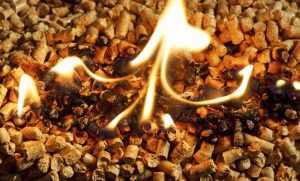South Korea to dramatically reduce biomass subsidies

The country has subsidised biomass with millions of dollars for over a decade, leveraged via a renewable energy certificates programme.
With limited domestic forest resources, South Korea has structured its operation around importing huge volumes of wood pellets from forest-heavy nations.
Last year, imports comprised 82% of the country's wood pellet demand, meaning South Korea was the third-largest global importer of biomass pellets - following the UK and Japan.
“As the [biomass] market expanded, various issues emerged,” said South Korea's Ministry of Trade, Industry and Energy in a press release. “Criticisms regarding forest degradation and carbon emissions associated with biomass power generation persist."
Under the revised policy, South Korea will no longer support any new biomass plants.
Subsidies for six existing state-owned plants co-firing coal and biomass will end this year, while the value of renewable energy certificates for three state-owned dedicated biomass plants will be phased down by 2027.
At privately owned plants, subsidies for co-fired biomass from six plants will be phased out over the next decade, while subsidy weightings will be reduced for 12 dedicated biomass plants over the next 15 years.
















